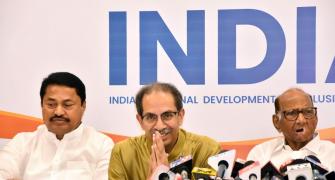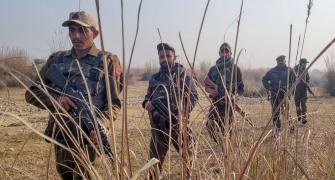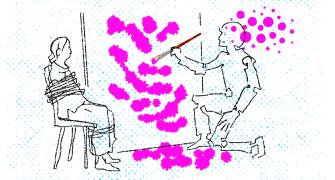When Wing Commander Rajiv Kothiyal resigned in 2002 as one of the most qualified test pilots in the Indian Air Force and quickly found a flying job in a start-up airline, Deccan Airways, he felt he had won a jackpot.
Just four years later, Kothiyal, now chief pilot of Deccan Airways, shakes his head ruefully at how much things have changed.
Deccan Airways has expanded from a single aircraft to 41; 400 pilots are on the rolls to utilise the fleet optimally. Jostling for pilots with Deccan are equally aggressive start-ups like Kingfisher, GoAir, Spicejet and Paramount.
Today, India's 14 scheduled airlines operate more than 300 aircraft between them. Every month the figure rises, and each aircraft that comes in brings along a demand for 10 more pilots. Compounding the pilot shortfall are another 350 aircraft, owned by non-scheduled airlines and private entities.
In this sellers' market, a commercial pilot's licence and a Directorate General of Civil Aviation certification is enough to land a job that gets one Rs 300,000-400,000 a month.
The requirement of junior co-pilots is largely met through a growing supply of newly trained pilots from Indian flying clubs, supplemented by increasing numbers training abroad.
At a premium, though, are senior pilots, needed to captain airline flights. Filling this gap are foreign pilots with 1,000-1,500 hours of flying experience, mostly from East Europe, Australia and Latin America. Deccan Airways alone has hired more than 100 foreign pilots, paying them a package of $10,000 a month, 50 per cent more than their Indian counterparts.
Observing this situation is Wing Commander Devesh Kakar (name and location changed on request) who handles flight administration at an IAF base in Allahabad.
Although Kakar has logged 1,200 hours on an IAF aircraft, some 19 years of incident-free flying, that alone does not guarantee career progression in the steep promotion pyramid of the defence services. Kakar needs only to pass a simple DGCA conversion exam for a civil license, which could translate into a ten-fold jump over his IAF salary.
He is exactly the kind of person that Indian airlines are desperate for: experienced in flying in Indian conditions, adept at dealing with Indian situations and people, and considerably cheaper to employ than pilots from abroad.
But there's a hitch. Facing a shortfall of over 200 pilots, Air Chief Marshall SP Tyagi has clamped down on letting pilots leave service. Before Kakar's resignation is accepted, he will have to be rejected for further promotion by three separate promotion boards.
Unlike any other employer, the Indian military can refuse to allow its personnel to resign and the courts have always upheld its decision.
For the airline industry, this is bad news. The civil aviation administration, searching feverishly for managers, instructors and pilots to support India's burgeoning aviation growth, tip-toes around the IAF's decision, but continues to eye this manpower pool.
Civil Aviation Secretary Ajay Prasad, who recently employed a retired air force officer to run the prestigious Sanjay Gandhi National Flying Academy, says, "We need pilots. We want to give the pilots who are available to be released from the air force a greater role in civilian traffic. We can fly a person who is medically fit up to the age of 65 and in the air force people retire much earlier, so we can certainly use them as instructors and even as online pilots."
But Air Chief Marshall SP Tyagi points out that if civil aviation is expanding, so is the IAF. The air chief says, "Pilots are not a commodity that gets produced at short notice. I can get a civilian pilot from the market; the same is not true of a combat pilot. He's an officer, a highly trained military leader. If he's got ten years of service it will take me ten years to produce another one."
Adding to the demand for Indian pilots is the language problem that many expatriate pilots face in communicating with Indian air traffic controllers. "The accent is different and there is bound to be a communication gap," Deccan Airline's Chief Pilot Rajiv Kothiyal says.
The IAF's inability to release its pilots may be infuriating for civil airlines, but aviation consultant Tulsi Kesharwani believes that this could work well for pilots in the long term.
"If just one airline folds up today and returns its aircraft, you could quickly have a situation where there are more pilots than are needed," he says.







